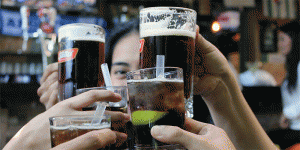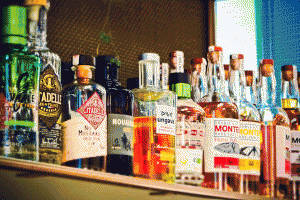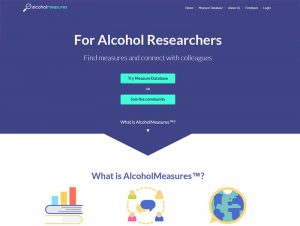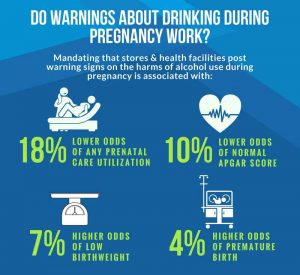Study shows efficacy of digital tool as a harm reduction strategy A new study from ARG Scientist Madhabika Nayak and colleagues found that women who were risky drinkers and completed an electronic screening and brief intervention (e-SBI) program called DrinkWise significantly reduced their weekly alcohol use and heavy alcohol use at the six-month follow up, compared to those who did not complete the program. This is the first non-intensive (single session), self-administered e-SBI in English … [Read more...]
New Findings
Some people with alcohol use disorder may be able to substitute cannabis for alcohol
New study links moderate cannabis use to persistent alcohol problems; finds no association for heavier or lighter use People with a lifetime alcohol use disorder (AUD) who used cannabis moderately had 2.83 times the number of drinks and experienced 6.82 times greater odds of alcohol-related harms than abstainers, according to a new study from ARG biostatistician and lead author Meenakshi Sabina Subbaraman and colleagues. Mid-level cannabis users also had an increased number of heavy … [Read more...]
Recent increases in alcohol consumption may be higher than previously reported
New study finds a more accurate way to measure per capita alcohol consumption that accounts for changes to how much alcohol is in beer, wine, and spirits The way we currently measure how much alcohol each person is consuming may be less accurate than previously thought, according to a new study from the Alcohol Research Group, a program of the Public Health Institute. The study authors offer a new way to determine per capita alcohol consumption that accounts for changes to the alcohol content … [Read more...]
Multilingual Alcohol Measures
Addressing Alcohol-related Disparities It is well documented that there is a bias in clinical and epidemiological studies, one that favors English over other languages, both in how it is communicated and used. It is a bias that also permeates the research process, from how studies are designed and who participates, through to what is published and disseminated. While scientists are aware of this language bias, there are few resources and mechanisms available to support a more equitable … [Read more...]
Violent Crime Linked to Liquor Stores
A 10% increase in access to alcohol outlets was significantly associated with a 4.2% rise in violent crime in Baltimore, MD, a new study from ARG postdoctoral fellow Pamela Trangenstein found. Trangenstein and her team from Johns Hopkins also assessed whether the type of outlet made a difference, with results showing that greater access to off-site outlets was associated with a 4.4% increase in violent crime compared to 3% for on-site. This is the first ecologic study in the U.S. to use spatial … [Read more...]
Stricter policies & alcohol-related injuries
Stricter policies linked to lower rates of alcohol-related injuries International study finds government restrictions on drinking curbs injuries despite alcohol use rates and patterns Emeryville, CA (June 27, 2018): Countries with stricter alcohol policies had lower rates of alcohol-related injuries, regardless of individual consumption rates and drinking patterns, and country-level drinking patterns, a new study from the Alcohol Research Group (ARG), a program of the Public Health … [Read more...]
Policies Tied to Worse Birth Outcomes
Policies targeting alcohol use during pregnancy tied to worse birth outcomes New study suggests even “supportive” policies lead women to delay or avoid prenatal care Emeryville, CA (June 18, 2018) – A majority of state-level policies targeting women’s alcohol consumption during pregnancy—even policies designed to support pregnant women—lead to more adverse birth outcomes and less prenatal care utilization, according to a new study from ARG and Advancing New Standards in Reproductive Health … [Read more...]
Drinking hurts more than the drinker
Drinking hurts more than just the drinker, new study finds Poor mental health linked to financial problems and assaults caused by other drinkers A new cross-sectional study found a strong association between poor quality of life and greater distress for people who experienced financial problems due to someone else’s drinking or had been assaulted by a spouse, partner, or family member. “It was important for us to try to identify harms, such as mental health problems, caused by problem … [Read more...]








